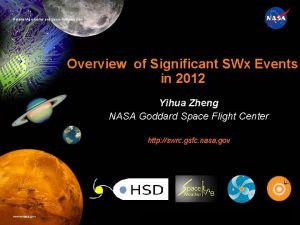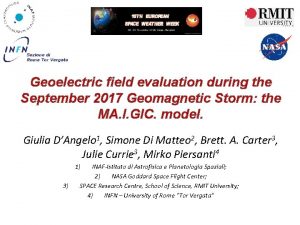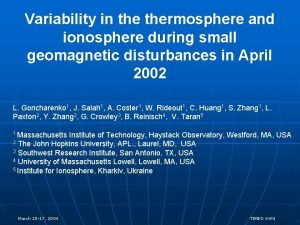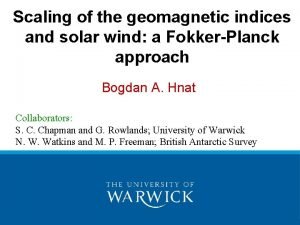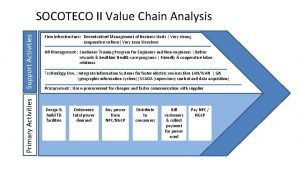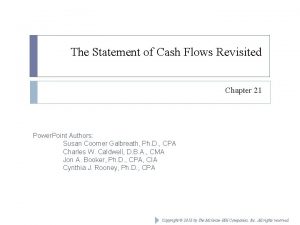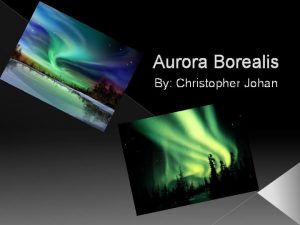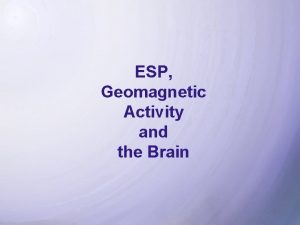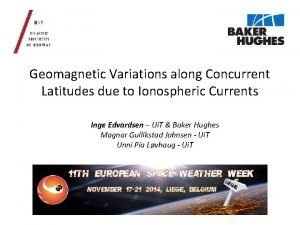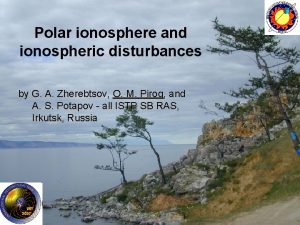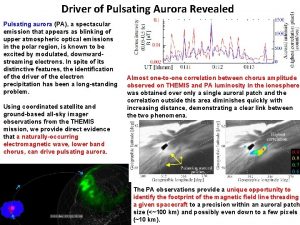Semiannual Geomagnetic Aurora activities derived from Ionospheric s









- Slides: 9

Semi-annual Geomagnetic (Aurora) activities derived from Ionospheric s. P M. Yamauchi Swedish Institute of Space Physics (IRF), Kiruna Kp & nightside AL Þ semi-annual peak AU & dayside AL Þ annual peak

Decay of magnetospheric energy by s. P of entire hemisphere High dissipation during winter through the summer hemisphere. Equinox converts convection energy to the aurora effectively. Calculate the accumulated input energy (e·t) for different seasons using a simple circuit model. e : instantaneous input energy e µ s. P. t : decay time of total energy t µ 1/∫N+Ss. P Þ Simply calculate e·t µ s. P / ∫N+Ss. P

Lat 90° Solstice s. P 60° 90° 50° 12 LT 18 LT 24 LT 90° * Chapman a layer s. P µ √cos(q) * Chapman b layer s. P µ cos(q) where q is the solar zeneath angle 50° 90° 60° 90° 50° 12 LT 18 LT 24 LT

Faint precipitation case Map of s. P Lat 90° 50° inc=23 ° inc=14° inc=5° Strong precipitation case

Result ! 24 LT 22 LT 20 LT 18 LT 16 LT

Faint precipitation case Strong precipitation case 24 LT 22 LT 20 LT 18 LT 16 LT

Summery of the simple circuit model (1) The semi-annual variation of the geomagnetic activity is reproduced from a very simple circuit model using conductivity effect (SP/∫N+SSP) only. (2) Semi-annual variation of SP/∫N+SSP is found in wide range of LT, and is most prominent at 60 -70° latitude. (3) Since large activity corresponds to wide area of "decay" region (integral becomes wide), we expect that intensity of substorms for same input has more clearly semi-annual variation. Þ Need to examine the Kp dependence of the semi-annual variation to check Kp variation is consistent with the SP/∫N+SSP model.

High Kp is more often near equinox than near solstice It is not a linear lift up the activity for equinox, but the large activities are selectively enhanced during equinox.

axis = number of 3 -hour periods during a 4 -month period Each x represents 1 -year data
